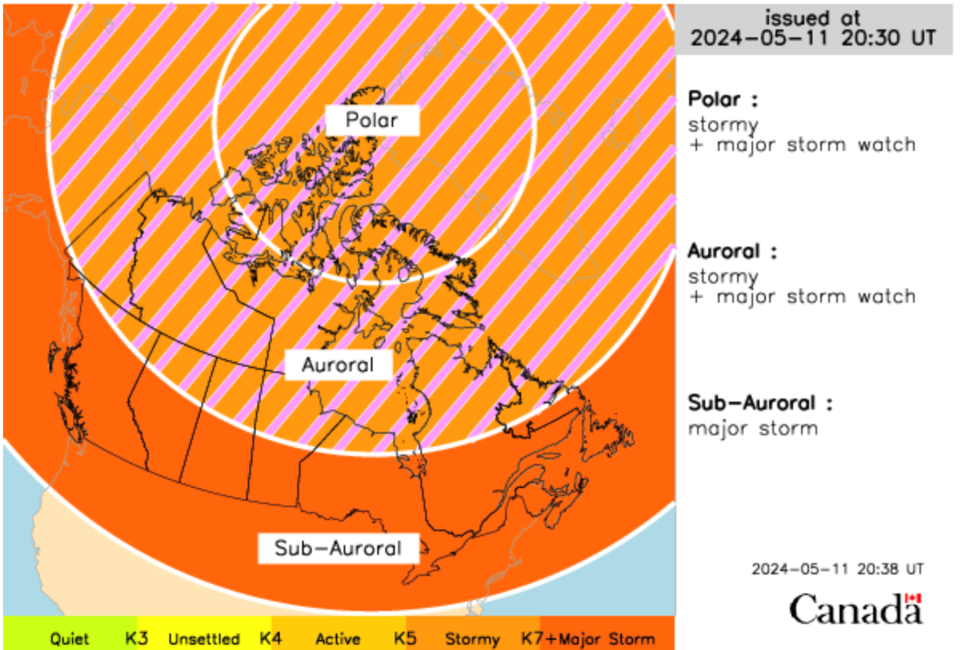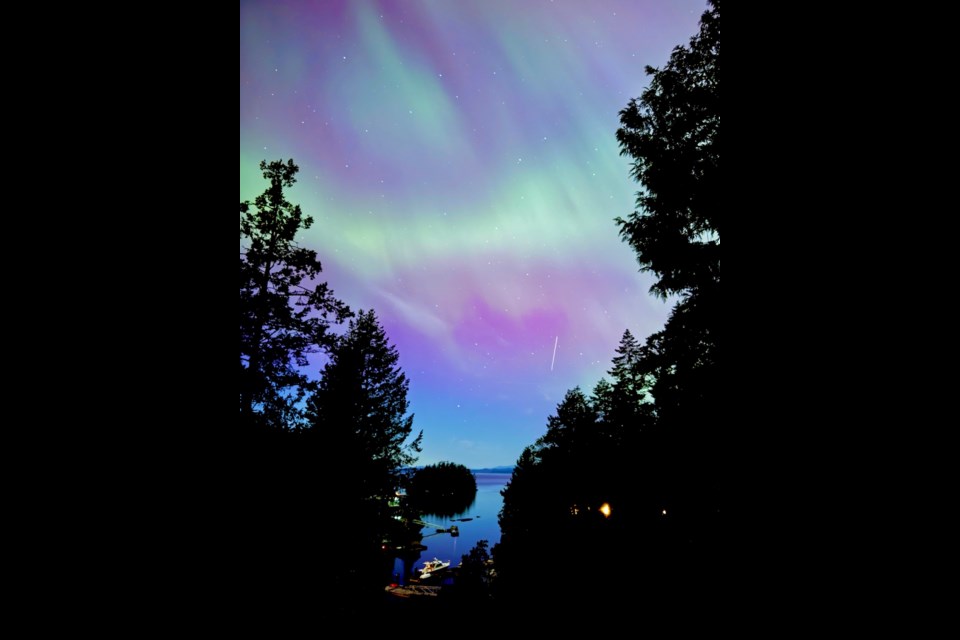While Sunshine Coasters nursed their disappointment over the Vancouver Canucks' overtime loss to the Edmonton Oilers in Game 2 of the second round of the Stanley Cup Playoffs yesterday, they had plenty to hold their attention.
The northern lights made a dramatic and unusually vibrant appearance over southern B.C. (and across southern Canada), as a "major geomagnetic storm" hit the country.
Those who missed the light show Friday, may yet get their chance to see the not-so-northern lights.
Space Weather Canada says that there's a major geomagnetic storm watch in effect from May 10 to May 13. As of mid-afternoon May 11, the Canadian agency's 24-hour Space Weather Forecast predicts major storm activity in the Sub-Auroral region, which includes much of southern Canada and northern mainland U.S.

The American National Oceanic and Atmospheric Administration (NOAA) Space Weather Prediction Centre says that severe and extreme (G4 and G5) geomagnetic storms are likely to persist into at least Sunday.
On Thursday, May 9, the NOAA issued a severe (G4) geomagnetic storm watch; it's the first one issued since 2005.
"At least five Earth-directed coronal mass ejections (CMEs) were observed and expected to arrive as early as midday Friday, May 10 and persist through Sunday, May 12," they stated.
"This is an unusual event."
The ejections are coming from a sunspot 16 times the diameter of Earth. That spot has caused G4 storms earlier this year. However, NOAA notes the last G5 storm hit Earth in 2003 and caused power issues from South Africa to Sweden.
"CMEs are explosions of plasma and magnetic fields from the sun’s corona. They cause geomagnetic storms when they are directed at Earth," states NOAA in the watch notice. "Geomagnetic storms can impact infrastructure in near-Earth orbit and on Earth’s surface, potentially disrupting communications, the electric power grid, navigation, radio and satellite operations."
NOAA's been keeping skywatchers updated on X/Twitter and detailed Saturday morning that G5 (severe) conditions have been observed. The post noted that, "There have been reports of power grid irregularities and degradation to high-frequency communications and GPS."
– With files from Brendan Kergin, Vancouver Is Awesome


